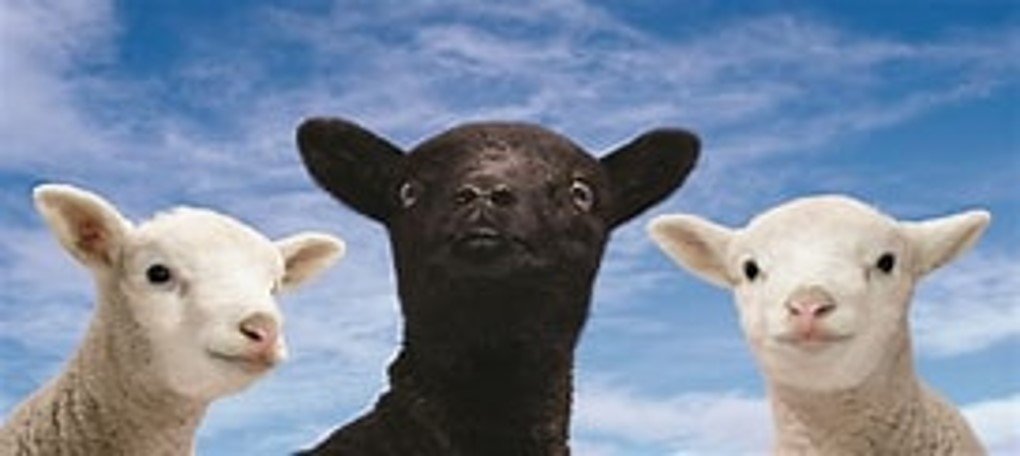Are you a black sheep, or even a secret one?
Walking amongst the magic of my favourite spot in Cornwall last week I came across two fields full of sheep, all happily baaing away at one another. Is it me, or are sheep actually REALLY loud?!
Anyway, standing gloriously in the centre of one field was a black sheep. As she stood proudly amongst her flock I marvelled at her uniqueness and noble beauty. It got me thinking about THAT black sheep analogy. I could literally be minted if I had a fiver for every client (and I include myself here) that has uttered those words ‘I’m the black sheep of the family’. (Actually maybe it’s time to add a black sheep fine box to my therapy room – it could turn out to be a very profitable income stream!)
So, returning to my campsite, I soon found a WIFI hotspot and had a Google… Where did this term come from? It turns out that in the English language, black sheep is an idiom used to describe an odd or disreputable member of a group, especially within a family.
Literature from as far back as 1500 includes this phrase and its origin lies in the black, non-dyeable sheep’s wool, which had much less value. In turn, the term black sheep was used to describe those who were perceived to be relatively worthless or outside of the norm (whatever that is!).
For me, being a black sheep meant that I felt like I didn’t belong. I didn’t possess the tribally shared characteristics that would provide me with the golden ticket of being truly native to my clan. I had a strong belief that if I voiced this concern I would be ousted. So, to survive, I faked it, and in doing so stepped out of the truth of who I was born to be.
As you’d expect, entering adolescence, (a typically turbulent period of identity and self- discovery) I felt untethered and so pulled into many different versions of being, so I could belong. I lost myself, pretending so hard, so as to be accepted, loved and secure in the world.
In fact, I believed that remaining a secret black sheep kept me safe, so I settled into my role. I eventually realised that this strategy was not working. In falling so far from my truth, I had developed a scathing contempt for myself. I realised that being so disingenuous was hurting me, but I couldn’t understand why. Rita Mae Browne once said; "The reward for conformity is that everyone likes you but yourself.” This truism manifested itself in me as I fell deep into isolation, rumination and self-loathing and the results were life threatening (and, as they say, THAT, is another story….)
Having traversed the path of self I’m now able to wholly appreciate and even sometimes celebrate my differences. In fact, I encourage everyone to feel the freedom of this liberation from normal, because normal, even within your tribe, simply doesn’t exist.
Unpicking our beliefs takes intention, and time. Our beliefs become our thoughts, and then we allow our thoughts to become our feelings. ‘I’m a black sheep.’ How does it feel to say that out loud? What thoughts, images and feelings come up now when you say them?
Beliefs such as these are almost always formed in the theta (pre seven years old state) of suggestibility. We are not questioning yet, just downloading, and it is these downloads that provide the programming that we work from until we choose, or are forced to, look at this conditioning. As I say to my clients, until we can become conscious of what drives us, we are unable to make the changes, and will continue to do what’s tantamount to taking advice from our 7 year old selves!!
So here are some questions for your adult self and these are wonderful journaling questions too:
What evidence do you have to suggest that this belief is true?
Write down all the ideas you have around this belief and then ask yourself ‘Is it true?.
When did you start to feel this way?
What was happening in your life? Take a global view too. What was happening around you, in your family, your community, society, country.
Was there an event that brought you to this conclusion, or was it just a general feeling?
Was it something that was said to your child-self that you are able to re-see, with a different understanding through your eyes as an adult?
Answering these questions allows us to update and change the narrative of the inner voice, and look at what the truth REALLY is.
So, what’s the truth? Maybe, you are the black sheep, but what does that mean, and does it still need to have such negative connotations after all of these years?
From my view of the sheep fields I see it as being the beautiful, proudly different and unique being you were born to be.

